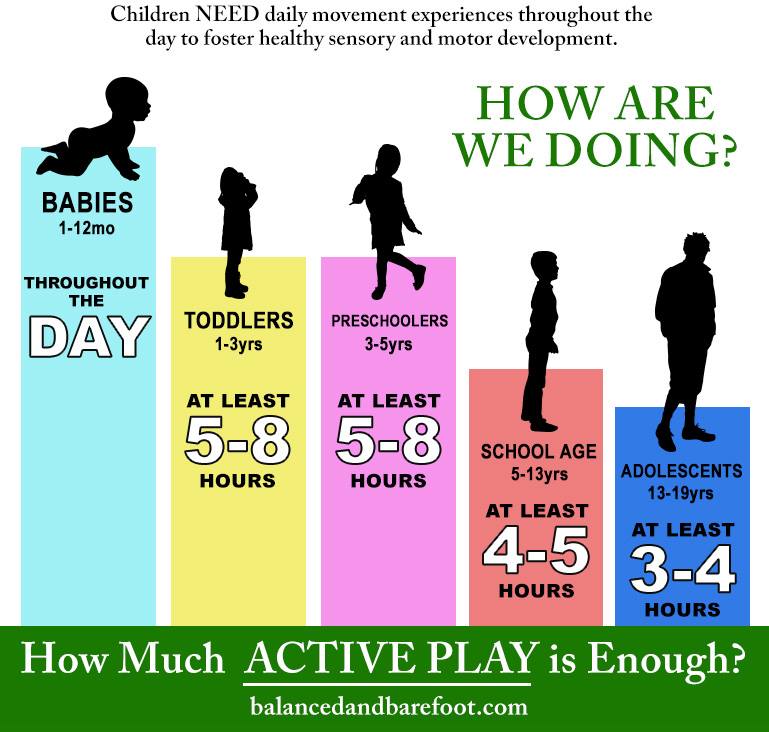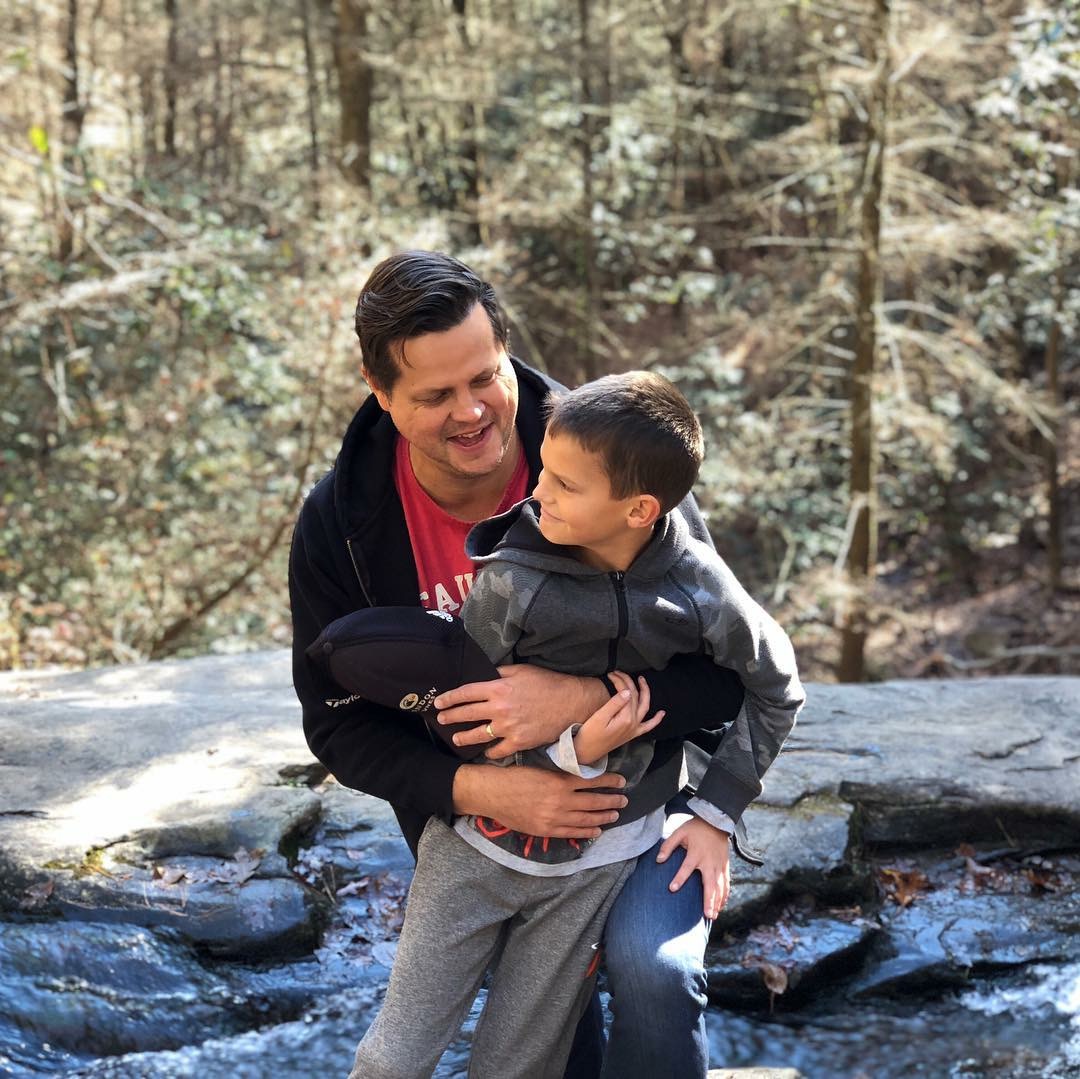
by Kathryn de Bruin | May 11, 2018 | Family Therapy, Sexuality
Masters and Johnson (from the book Sex and Human Loving) have a saying that I appreciate, that as parents we don’t really have a choice about whether our children get sex information, instead we can only choose whether or not to participate in the sex education and definition of sexuality that is already taking place.
So it is with this outlook, that sex education is going to happen whether we like it or not, and whether we are involved or not, that we suggest that sexuality is not a single act, but instead it is a journey and a lifestyle. As parents, we are often most focused on one single point on the map, explaining to our children what sex is, and what menstruation is. This single point is a ticking time bomb, and many of us feel ill prepared for this conversation and end up dreading it. But what if we took the pressure off this one point of time, and take a whole childhood to seed that conversation.
Being able to take this journey I believe consists of three parts:
Step 1 is our definition of healthy sexuality. With a broad definition, we will see the opportunities throughout the developmental stages, to discuss sexuality.
Step 2 is considering our own sexuality and understanding what we bring to this conversation. Whether that is our own anxiety or our comfort in approaching sexuality.
Step 3 is understanding who our child is, so that we can adequately meet them on this journey. Our knowledge and attunement to our child, will help us know when and how to address this topic.
During this blog series, we will discuss each of these three Steps to helping our children develop a healthy sexuality. We did an informal survey of parents, asking for questions about this topic, and so we will also be covering a number of these, including: sexual exploration versus molestation, discuss sexuality at the developmental stages, etc…
Mariah and I hope that with this blog series, we might be able to show you what this journey could entail, and perhaps steer you in the right direction or at least show you the next step.
We’re excited to walk alongside you in this series,
Kathryn and Mariah
ABOUT KATHRYN DE BRUIN
Kathryn de Bruin is a Marriage and Family Therapist with a private practice in San Diego. She teaches play therapy at the UCSD Play Therapy Extension program, and trains therapists around the world in Emotionally Focused Couples Therapy. With a specialty in working with families, Kathryn has spoken on this topic of Developing Healthy Sexuality in Children in a variety of settings.
ABOUT MARIAH MCQUEEN
Mariah McQueen is a Marriage and Family Therapist Associate and has been working with Kathryn for three years. She works with couples and families using Emotionally Focused Therapy. She became passionate about the topic of healthy sexuality after going through her own healing journey individually and in her marriage. She has spoken and facilitates groups on the topic.

by Kathryn de Bruin | Feb 15, 2018 | Couples in Therapy, Family Therapy, Therapy
Couples benefit so much from our Intensive Couples Therapy Retreats as it means getting an expert couples therapist to themselves for an extended period of time.
Give your relationship the gift of being assessed, and get a treatment plan that is tailored just for the two of you.
Couples therapy takes time, and getting to a couples therapist once a week for an hour, can take a lot of effort. Dealing with scheduling, getting through the traffic, running into session out of breath, can also contribute to the stress that created the couple’s problems to begin with.
If this is the case for you, consider going to an Intensive Couples Retreat in San Diego. Because here, you get to create a schedule for your retreat. So you get to come in on a weekend, or a day of the week that you pick, and put aside 4 – 6 hours per day to work on your relationship.
You will be hosted in a beautiful office space, where you have a room to yourselves during your breaks, make yourselves at comfortable on the couch in our kitchen area, bring food to put in the fridge, heat up your lunch, or enjoy the balcony and get some sunshine and fresh air.
You might wonder if you are the right couple for this experience?
We always do an assessment over the phone first, taking some time to talk with both of you, to understand what your goals are, to get an idea of your dynamic, before setting up the intensive.
Call me now to get started with setting up the intensive:
Step 1: Call me to set up the intake Assessment phone call
This starts on the phone with a 15 min conversation with each of you, we discuss your goals, your history, any injuries that have come from the relational history.
BOOK AN ASSESSMENT PHONE CALL HERE
Step 2: Let’s book a time for your Intensive Couples Retreat
We will find dates that work for the three of us, and I will put that time aside. I will only charge you for the time that we spend doing therapy, and we will work on giving you needed breaks between appointments. Some couples go on a lunch break, others bring in lunch and enjoy the balcony, others go back to their hotel for a nap.
Step 3: Taking part in the Intensive
First 2 hrs in Session:
We will start together as a couple, and I will want to get to know your relationship. Where do you connect, how do each of you define closeness, when have things gone well or gone poorly.
I will then meet with each of you individually, to assess some more specific parts of your relationship: how do you each think and feel when you are feeling attacked in the relationship. What do you like about the relationship and what is not working for you. What would you change about your spouse if you could? At the end of this assessment time, you will get feedback, and we will lay out your treatment plan. Together we will decide how much of this treatment we want to get through during your time in San Diego.
Follow up:
This can happen with a therapist of your choice back in your home city. I will sign a Release of Information and share what we have done with your home therapist. Sometimes I support you as a couple with a follow up Intensive, or a follow up Online Call (using Skype or Zoom).
Let me know if you are interested in doing an Intensive with me, and we will create the schedule together!
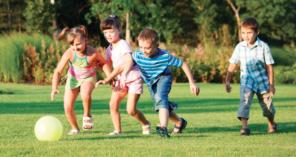
by Kathryn de Bruin | Feb 2, 2018 | Family Therapy, Play Therapy
There are tons of helpful “Stages of Play” graphics online. Hopefully these are helpful for parents to navigate and translate your child’s play in the various stages!
These stages are integral for a child’s development in all areas, especially social skills. However, every child develops at their own pace. I invite you to contact me if you have questions about your child’s behaviors at any stage- I’m happy to help!
-
Unoccupied Play (Birth-3 mos): A baby in this stage makes alot of body movements, discovering how to move their body and arms and legs.
-
Solitary Play (Birth-2 yrs):A child seems totally content playing by themselves without the involvement of others.
-
Spectator/ Onlooker Play (2 yrs): A child begins to watch others play, but still is content playing alone.
-
Parallel Play (2+ yrs): A child starts to play next to, or alongside others, but does not necessarily join in.
-
Associative Play (3-4 yrs): A child starts to interract with others while playing, however, they may all still be doing different things. This article gives an example of all the kids playing together on a jungle gym- but they may be doing different activities within that jungle gym.
-
Social / Cooperative Play (4+): When a child starts to not only pay attention and alongside other children in an activity, they are actively aware and playing with the other children involved.
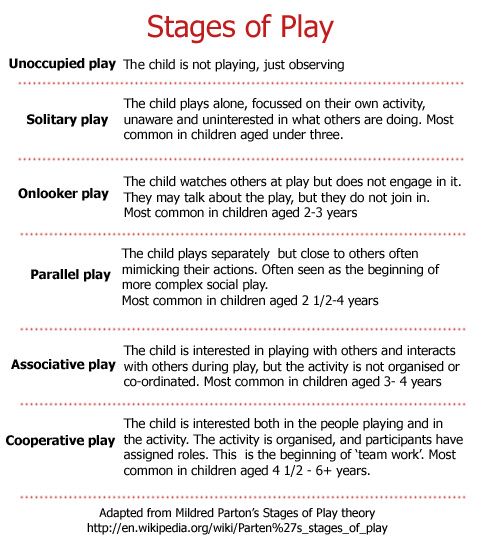
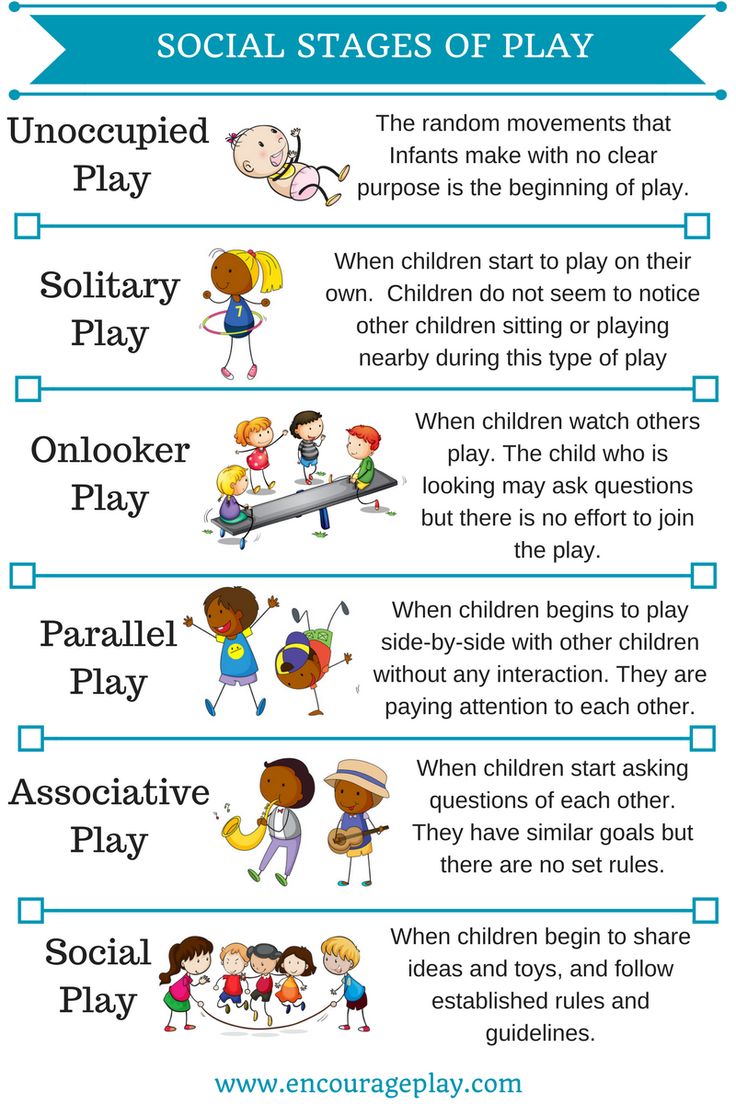
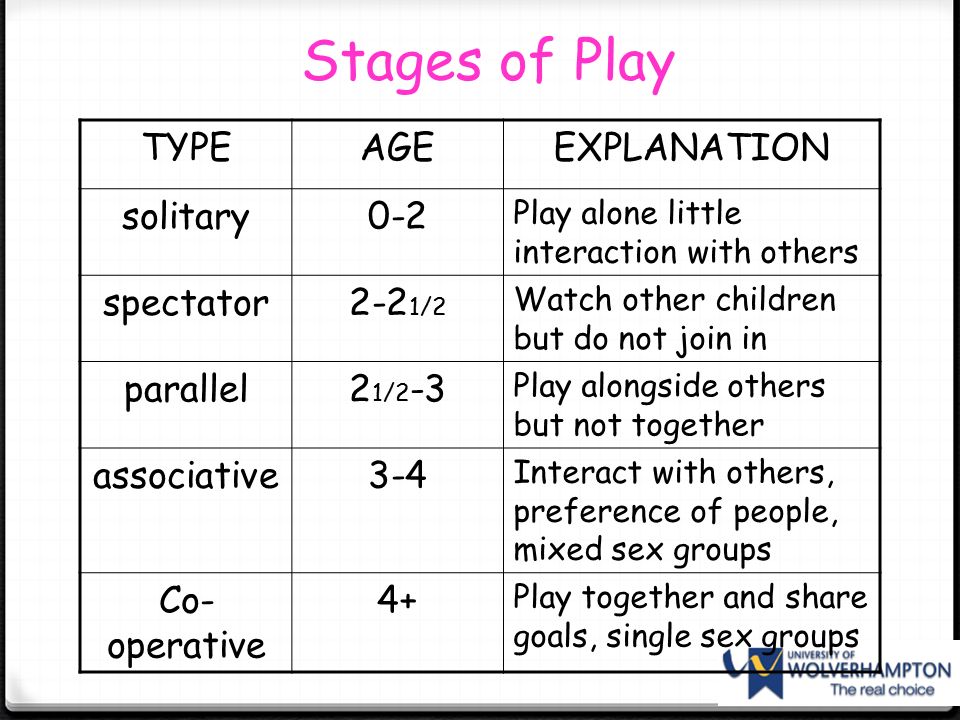
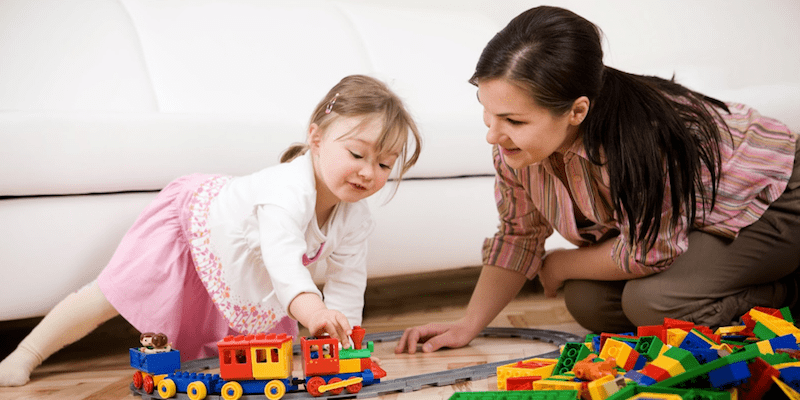
by Kathryn de Bruin | Jan 22, 2018 | Emotions, Family Therapy, Play Therapy, Therapy
If you’re wondering how play therapists choose their toys, it’s according to these Play Therapy Themes.
It doesn’t matter how many toys you have, but that you have toy in each category. This gives your child a wide toy choice so that they can express what they need to. If you watch carefully, you might also start to notice different play themes coming out in your child’s play. Look for one of these:
Power and Aggression Themes
–Good Guy vs. Bad Guy
–Aggressor-Victim (Child as Aggressor or Victim)
–Generalized Aggression
–Dying/Death
–Devouring
–Power Overcoming Weakness
–Seeking Power/Authority/Wisdom
Family Relationship and Nurturance Themes
–Constancy
–Togetherness/Separation
–Nurturing Others
–Self-Nurturance
–Failed Nurturance
–Self-Neglect or Punishment
–Lack of Attachment/Detachment
–Parent/Caregiver-Child
–Regression
–Exits and Entrances to Family System
Control and Safety Themes
–Danger
–Rescue
–Escape
–Fire/Disasters
–Burying or Drowning
–Broken/Sick/Hurt
–Fixing/Repairing/Doctoring
–Cleaning
–Messing
–Sorting
–Containing
–Protecting
–Controlling
–Refusal/Inaction
–Manipulation
Exploration and Mastery Themes
–Sensory/Environment Exploration
–Mastery/Competence
–Cheating/Winning
–Creativity
Interaction Themes
–Building Relationship With Adult
–General Positive Interactions
–General Negative Interactions
–Boredom
–Acceptance/Rejection
Sexualized Play
–Sexual Activities
–Sexual Behaviors Directed at Adult
–Sexual Curiosity
There is so much when it comes to playing. It’s the beginning of a whole new world. Enjoy it, watch carefully and learn about your kiddo!
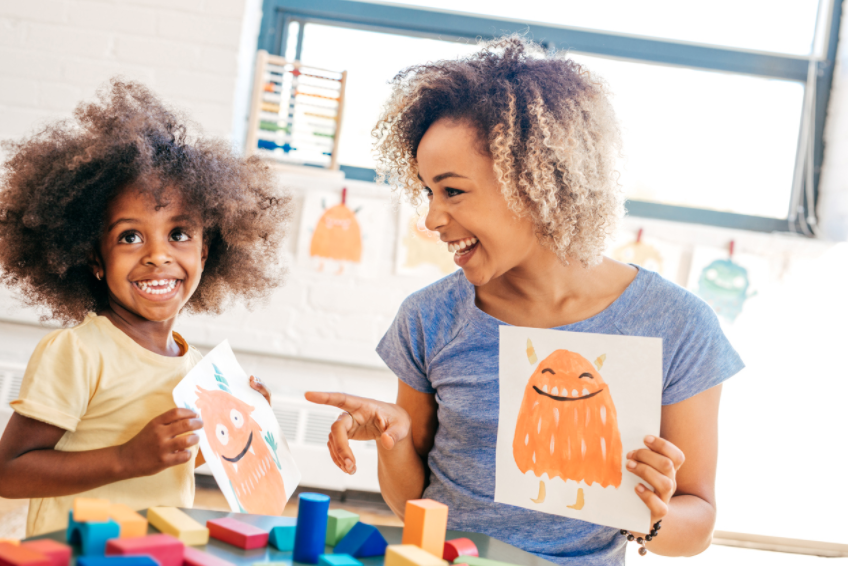
by Kathryn de Bruin | Jan 19, 2018 | Family Therapy, Play Therapy
Playing with your child, is one of the most important things that you can do.
It doesn’t matter what exactly you do. What matters more is that you get into the moment, enjoy yourselves together, and share a special moment.
Carl Rogers was a famous psychologist, and he transformed the field of psychotherapy, from that of analyzing a person’s past, to just being in the moment with them. Here’s something he said that inspires me today, when I am playing with children
“…as he finds someone else listening acceptantly to his feelings, he little by little becomes able to listen to himself.” “As he becomes more open to what is going on within him he becomes able to listen to feelings which he has always denied and repressed.” p63. (Becoming a person, 1940)
Carl Rogers also went on to say that, ”.. I enter the relationship not as a scientist, not as a physician who can accurately diagnose and cure, but as a person, entering into a personal relationship. Insofar as I see him only as an object, the client will tend to become only an object.” p201
Love this graph from balancedandbarefoot.com of how much activity children need!
